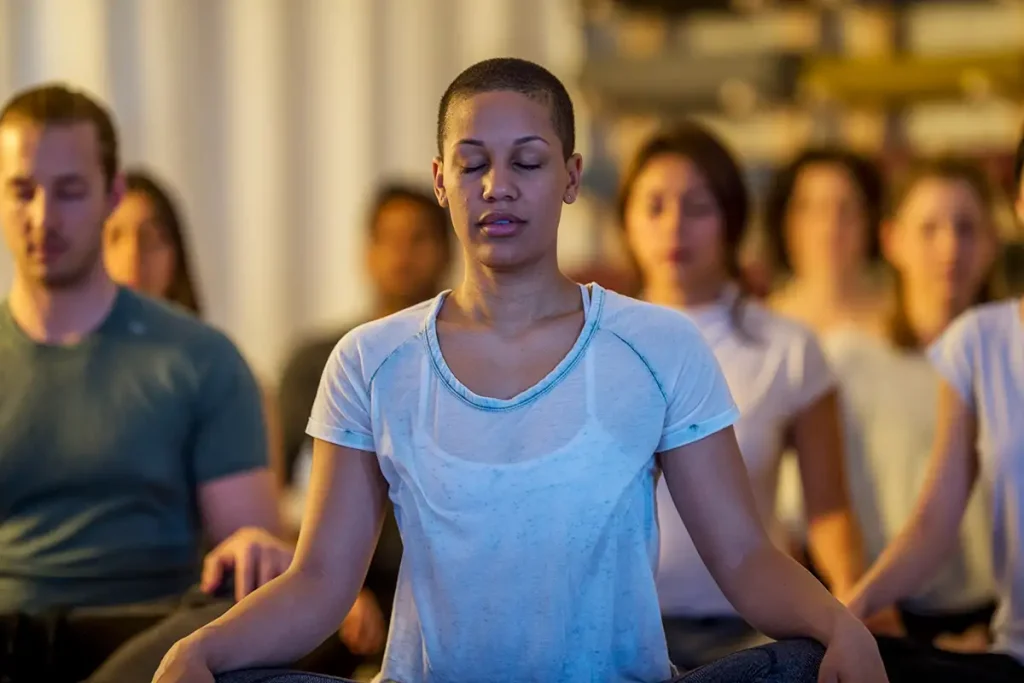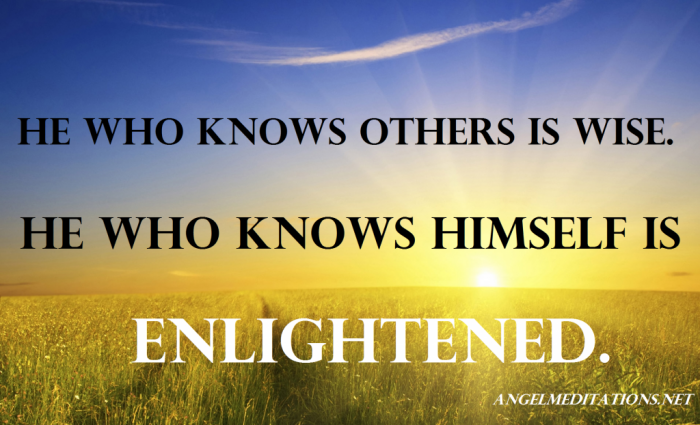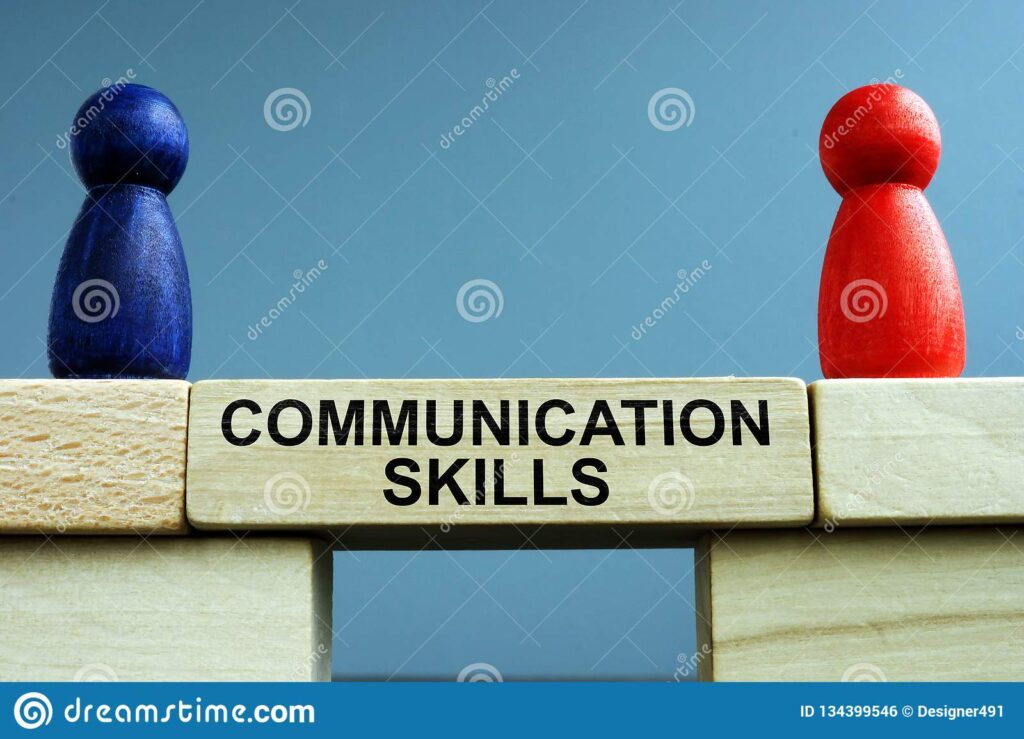I accidentally discovered a “spiritual” hack, a way to dramatically improve the effectiveness of my meditations on the quality of my life experience. AND, this hack also dramatically improve the quality of my relationships and experience with other people.

I call this discovery Meditation in Conversation. That is because I am basically meditating or practicing mindfulness DURING a conversation or even when listening to a lecture.
It started for me when I was in college and I would go to various meetings and lectures. Often I found that I violently disagreed with what was being said and it would take me days or even weeks to let go of my inner “dis-ease”.
Years later, when the stress of the world had finally gotten to me and my mental and physical health was seriously challenged, I went “seeking” a better understanding of myself. This is the beginning of my “spiritual” seeking but I was just trying to understand my mind and body better to have a healthier life experience.
In my seeking, I traveled around the world reading all sorts of books and listening to all sorts of teachers from many different traditions or perspectives.
One of the things I learned about was meditation. At first, it was very difficult but with patience and practice, I did master it. Because it felt good to experience the inner peace I was gaining I would practice meditation at every opportunity I could get. Most of the time when I was listening to a teacher talk I was just meditating and being mindful of my body/mind’s reactions or behaviors in relationship to what I was hearing. I noticed that I had physiological reactions to some of the things people say.
At some point, I remembered what I had learned in college psychology classes about Pavlov’s Dog and how that dog was programmed or conditioned to have a physiological response to artificial stimuli. For those who don’t know what I am referring to let me explain. Pavlov was a Russian behavior scientist. In his lab, he had a dog and every day he would bring the dog his food. When the dog saw the food he started salivating, a natural part of the digestive process. So Pavlov started ringing a bell when he brought the food and that conditioned the dog to associate in his mind the bell with food. Eventually, Pavlov could just ring the bell and the dog would salivate. The sound of the bell was an artificial stimulus that was producing a physiological response in the dog.
I recognize that I, too, had been “programmed” or conditioned to have psychological and physiological responses to words. For instance, if someone were to say to me that I was “bad” I noticed I would physically contract to greater or lesser degrees, probably because at some point or several points I was spanked for being “bad” as a child. Either way, the physiological reaction was a contraction and that was not comfortable.
Naturally, our ego does not like to think that we can be programmed like a robot or dog to have certain reactions, but the reality is we can and are programmed. People who are honest enough with themselves to admit this can then start working to re-program or condition themselves away from reactions or behaviors that no longer work for them.
That is what Meditation in Conversation is all about. The first step is just mindfulness; watching our mental, emotional, and physical reactions to what people are saying (or what we are reading or seeing).
I want to relate this process to “potty training” a child. We all went through that (I hope) so we can somewhat relate. I remember my parents potty training my much younger brother. At first, they would just ask Mike, my brother, if he needed to go potty. This was, of course, trying to get him to FEEL what he was feeling in his body or to raise his consciousness of his bowels and bladder. Could he detect the need to relieve himself? Normally, at first, he couldn’t tell and he would soil his diapers, but eventually, he would say, “I think so” and off to the bathroom he would go with my parent. In the bathroom, they would put him on his little potty, turn on the water dripping (to stimulate peeing) and say, “OK, now go potty.” This second stage of the process is where Mike was supposed to learn HOW to control his bladder and bowels within his body. This is gaining mastery over his body. Of course, this does not happen instantly but eventually, we all figure it out and gain control of an inner function of the body.
That is part of the process of Meditation in Conversation, we first practice mindfulness to gain awareness in our body then we can gain mastery over that process. In so doing we are stopping “soiling” ourselves with messy emotional responses to what life is offering.
I am sure that everyone can relate to times they were in conversation and got angry or upset in some way that causes them to blurt out something that they regretted later. This is to say nothing of the discomfort or even pain of our emotional reactions to what is said. Well, this Meditation in Conversation process will help you gain mastery over yourself in a way that enables you to control your responses so that you can “relieve” yourself when it is appropriate.
And, as in normal potty training, we are not trained to constrict our bowels or bladder, only to do so until we are in the bathroom. We don’t want to constrict our emotions or expressions either, but we would like to have civil conversations instead of acting like a two-year-old and blurting out whatever we are feeling and interrupting whoever is currently speaking.
More so, after a conversation, we don’t want to be left with an emotional trauma that scars us. This type of damage is only a product of our emotional reactions to a situation or conversation.
Sometimes it is not possible to express ourselves to someone, so with the skills one develops in Meditation in Conversation we can even totally release the “need” to express ourselves. I did this after my father died and I felt a very strong desire to express to him how I felt about him. Of course, I could not express it to him so I had to let that desire go. Some people have journaled to do the same thing or wrote a letter then burned it. We don’t always have the opportunity to sit down and write something, so the skill to let it go internally is better.
The second step is to learn to relax and let go of our conditioned response to various words or the thoughts they produce. Normal meditation says to just watch the thoughts come and go and EVENTUALLY, they will diminish in intensity. But I learned a “hack” here from studying psychology, physiology, and substance abuse. I learned that thoughts were electrochemical impulses traveling along the neurons of the brain and down into the body. The “electro” part is an electrical charge that travels along the outside of the neuron but when it gets to the end of the neuron or synapse then a chemical process happens where it/we release various neurotransmitters that either enable or suppress the electrical impulse. Neurotransmitters like cortisol, noradrenaline, and adrenaline enhance the electrical impulse which then dissipates into the muscles causing them to contract. You may remember this from biology class in high school where if you were like me you bisected a frog and as part of that process, at least we did this, we shocked the separated leg of the frog and it jumped or the muscles contracted. So when these “negative” neurotransmitters are released they cause contraction in the body, which, if held, we experience as stress, discomfort, or even pain. Thus I call those negative.
On the other hand, there are “positive” neurotransmitters such as serotonin, dopamine, and oxytocin. These neurotransmitters diminish the electrical charge traveling down the neuron so that that charge does not dissipate into the muscles causing them to contract but instead cause the muscles to relax, which we experience as positive or pleasurable.
When we are “doing” emotions such as joy or anger or love or depression or gratitude we are just intentionally (if not consciously) releasing the related neurotransmitters based on particular thoughts we have. For instance, if we are afraid we are having thoughts of the future, maybe the very near future but still the future, and then we are releasing the “negative” neurotransmitters that can give us power on how to deal physically with the danger of some sort. But if those perceived dangers are not immediate then the electrical charge just disparate into the whole body cause all the muscles to contract, which we call stress and experience as uncomfortable, painful, or negative. If we are experiencing joy we are releasing the “positive” neurotransmitters that cause us to relax and feel good.
Another benefit of Meditation in Conversation is that the skills one develops liberate us to be more open and honest with others. Why? Well, as we gain skill in relaxing around our thoughts we no longer will fear OURSELVES and our reactions to what people say to us. We have learned how to relax and let go of the sometimes hurtful words.
“Blessed be those who are not offended in me.” Jesus
Jesus’ Sermon on the Mount was all about blessedness, which means a state of supreme happiness. This is what we all want. Meditation is blessedness training. Nobody wants to be offended, upset, or angered. These behaviors are just our habits. Meditation in Conversation is developing the skill of respecting and loving ourselves; learning to NOT abuse ourselves physically or emotionally.




